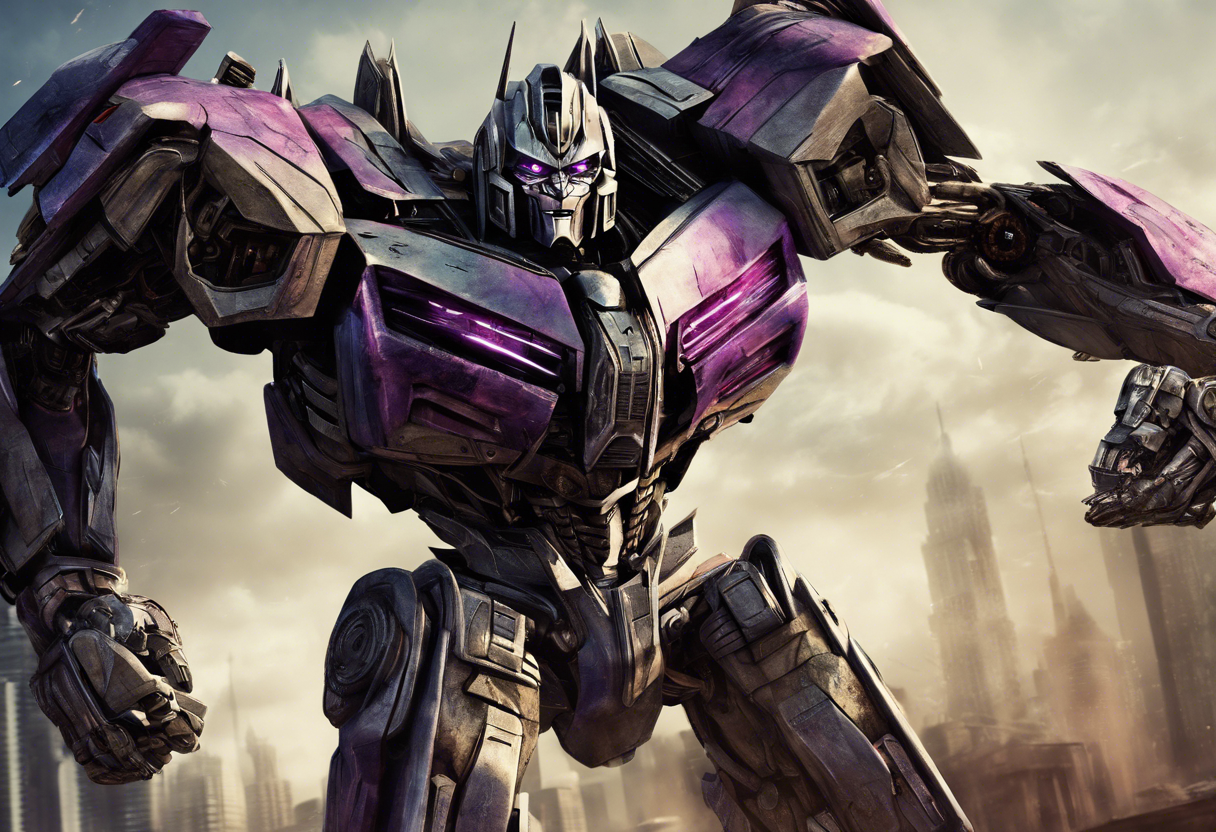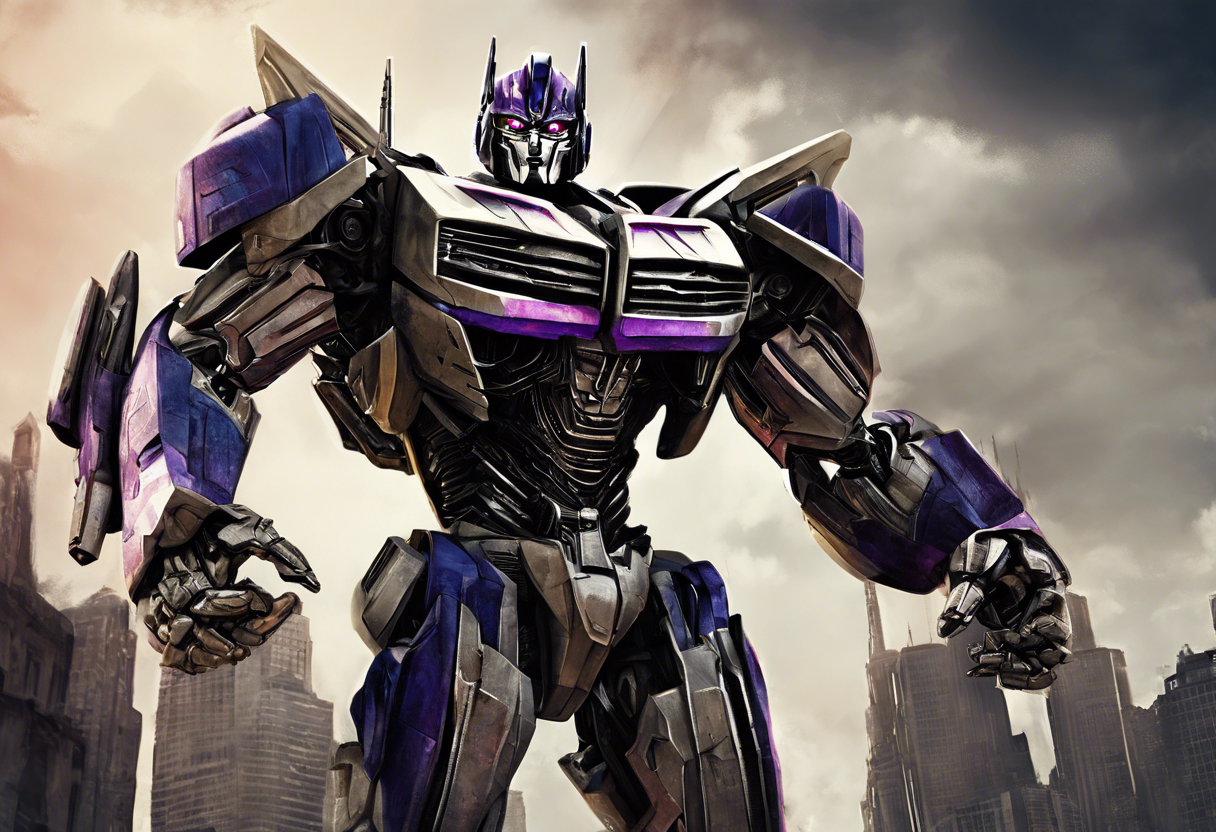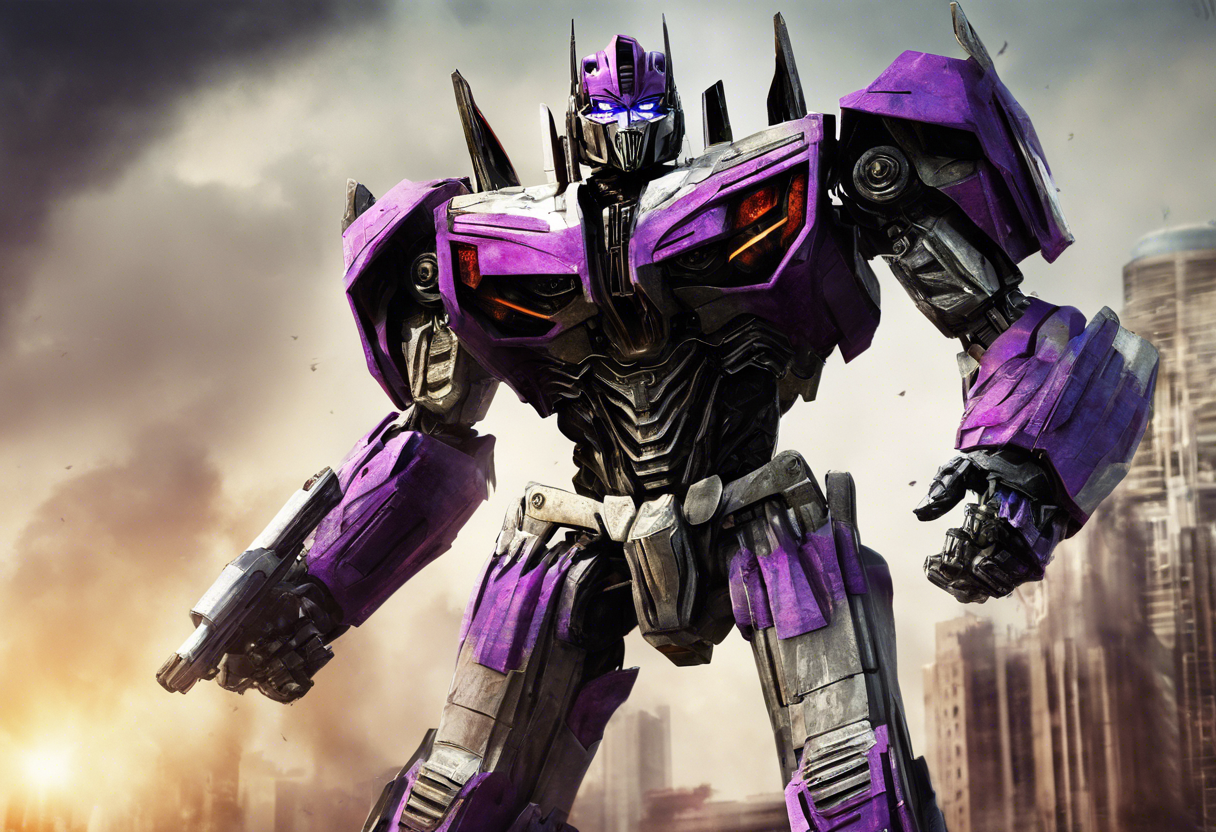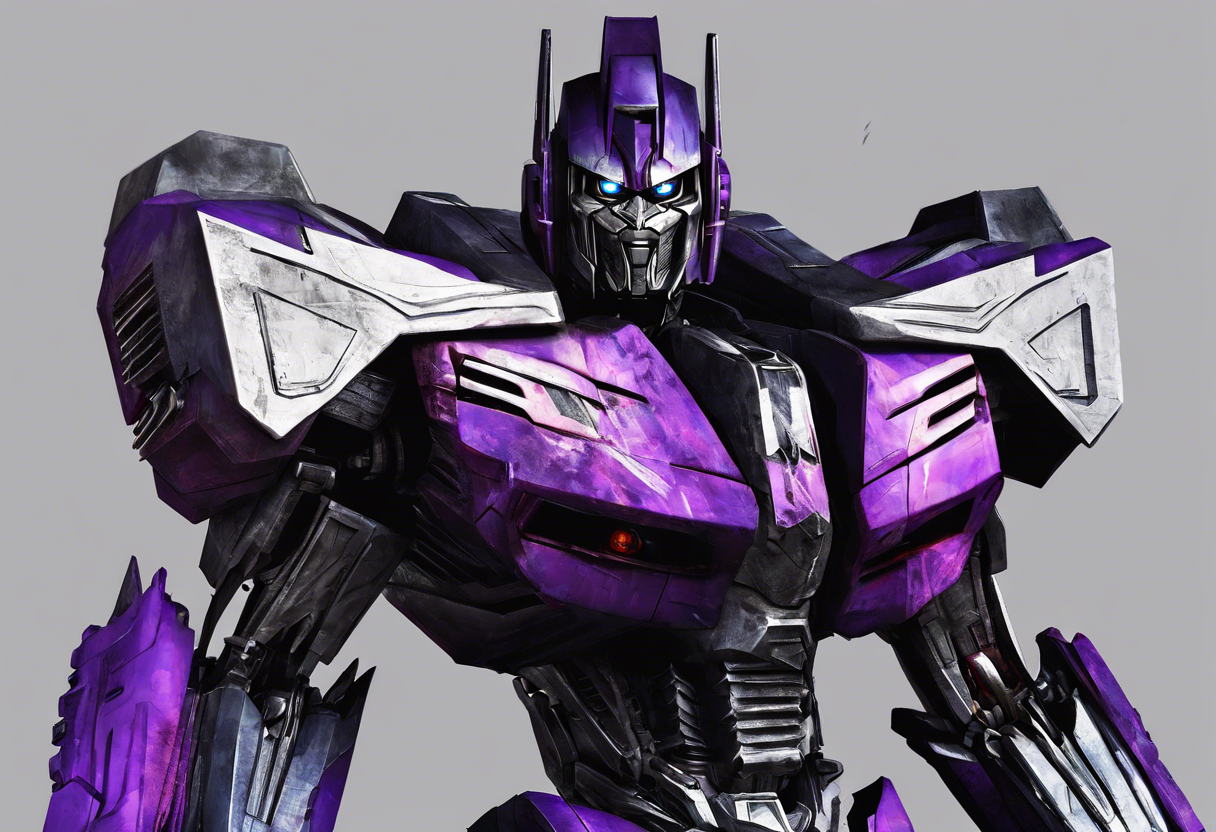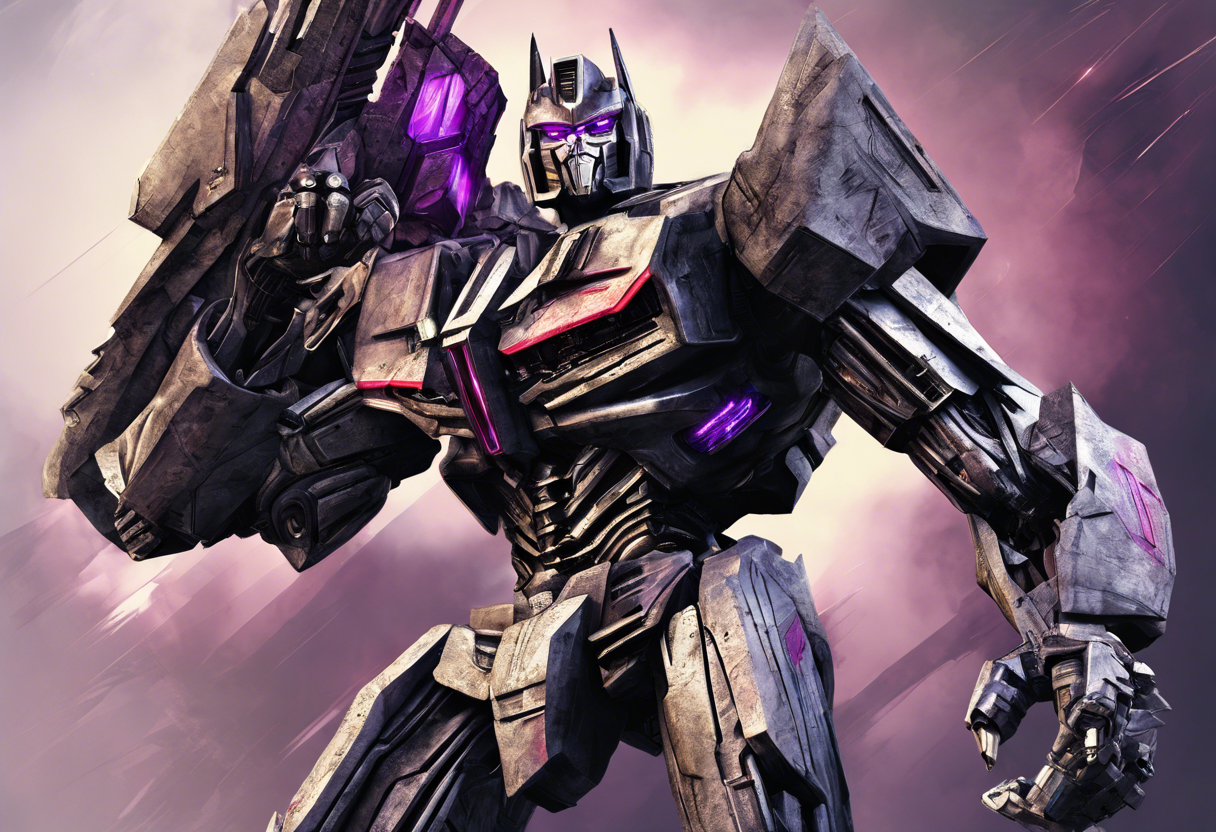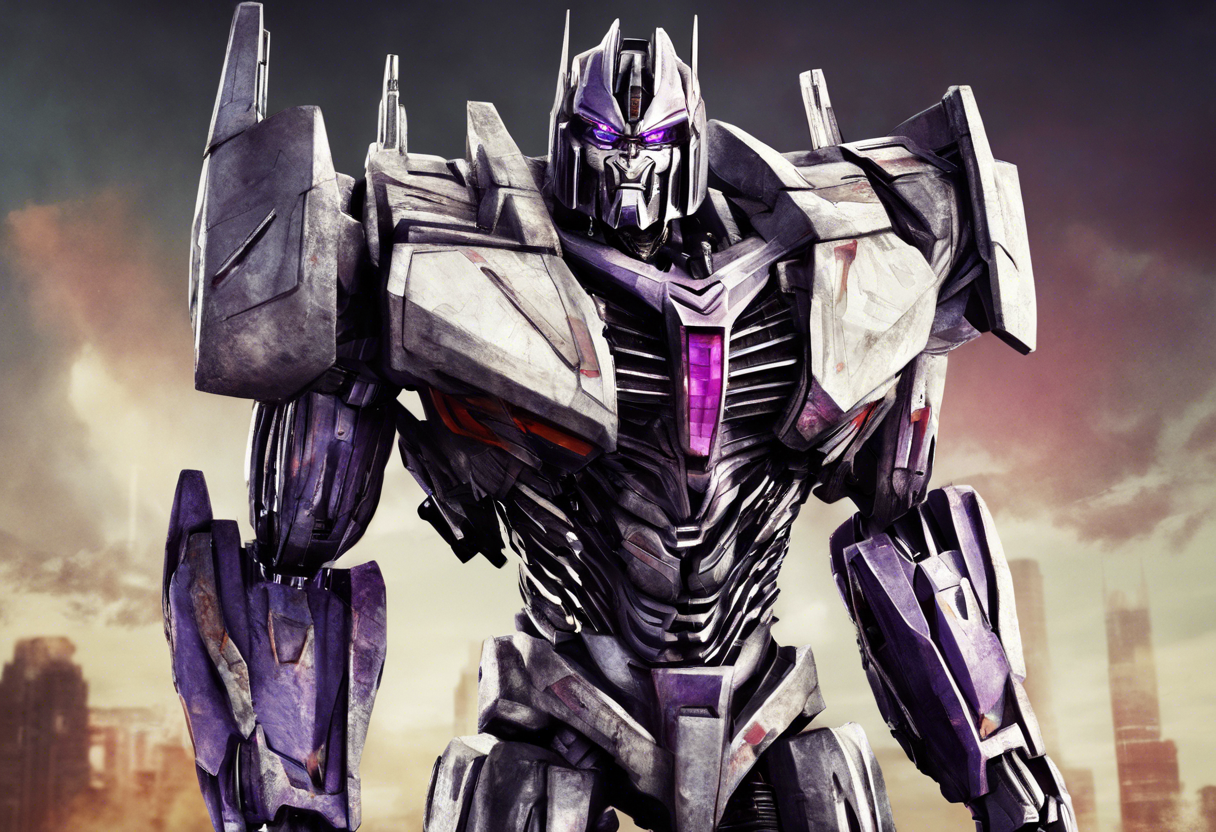Contents
Megatron: The Iconic Villain of the Transformers Franchise
Introduction
Megatron, one of the most recognizable and formidable villains in the realm of science fiction, is the central antagonist of the Transformers media franchise. Created by the American toy company Hasbro and the Japanese toy company Takara Tomy, Megatron debuted in the original 1984 animated series "The Transformers" and has since become a staple character in various adaptations, including animated series, films, and comic books.
Megatron’s backstory is deeply rooted in the lore of Cybertron, the home planet of the Transformers. Originally known as D-16, he was an oppressed worker who rose to prominence as a gladiatorial champion and later adopted the name Megatronus, one of the legendary Thirteen Primes of Cybertron [4]. This transformation marked the beginning of his journey from a revolutionary seeking to reform Cybertron’s corrupt governing body to a tyrannical leader driven by a lust for power and control.
As the leader of the Decepticons, Megatron is defined by his ruthless, cruel, and cunning nature. His primary goal is to harvest energon to defeat the Autobots, retake Cybertron, and conquer the universe. This relentless pursuit of power places him in direct conflict with Optimus Prime, the leader of the Autobots, setting the stage for an eternal struggle between good and evil [1].
Role in the Story
Megatron’s storyline is a complex and multifaceted one, filled with significant events and conflicts that shape the narrative of the Transformers franchise. Initially, Megatron was a revolutionary who sought to challenge Cybertron’s leadership and demand equality for all Cybertronians. He gathered a loyal following, including Soundwave, and proposed his vision for a just society to the High Council. However, when his ambitions were thwarted, Megatron’s desire for power and control consumed him, leading him to sever ties with his former allies and wage war against those who opposed him [2].
As the leader of the Decepticons, Megatron’s actions are marked by cruelty and a disregard for life. He is responsible for numerous atrocities, including harming human characters and reveling in their suffering. This brutality is a hallmark of his character and underscores his role as the archenemy of Optimus Prime and the Autobots [2].
Throughout the various series and films, Megatron’s journey involves multiple transformations and alliances. He forms an alliance with the cosmic entity Unicron, which leads to his rebirth as Galvatron after his initial defeat. As Galvatron, he continues his quest for power, often exhibiting bouts of lucidity but ultimately succumbing to his violent and angry tendencies [4].
Character Analysis
Megatron’s personality is a blend of intelligence, cunning, and unyielding ambition. He is a master strategist who will stop at nothing to achieve his goals, making him a formidable opponent. His motivations are rooted in a deep-seated desire for power and control, which stems from his early experiences as an oppressed worker. This background fuels his revolutionary zeal and later his tyrannical rule over the Decepticons.
One of Megatron’s greatest strengths is his ability to inspire loyalty in his followers. Despite his cruel nature, he is able to gather a devoted army of Decepticons who are willing to follow him into battle. However, this loyalty is often built on fear and coercion rather than genuine admiration or respect.
Megatron’s flaws are numerous and significant. His insatiable hunger for power leads him to make decisions that are morally reprehensible and ultimately self-destructive. His inability to empathize with others and his disregard for life make him a compelling yet terrifying villain. Despite these flaws, Megatron’s complexity and depth make him a relatable character, particularly when his backstory and motivations are explored in detail.
The development of Megatron’s character is a key aspect of the Transformers narrative. He evolves from a charismatic revolutionary to a ruthless tyrant, illustrating the dangers of unchecked ambition and the corrupting influence of power. This transformation serves as a cautionary tale about the consequences of allowing negative emotions to dominate one’s actions [3].
Themes and Symbolism
Megatron embodies several themes that are central to the Transformers franchise. One of the most significant is the danger of unchecked power and the corrupting influence it can have on individuals. Megatron’s rise from an oppressed worker to a tyrannical leader serves as a warning about the consequences of allowing ambition to consume one’s actions.
Another theme associated with Megatron is the struggle between freedom and oppression. His early revolutionary ideals, which called for equality and self-determination, contrast sharply with his later actions as a tyrant who seeks to enslave others. This dichotomy highlights the importance of leadership and the impact that leaders can have on society [2].
Symbolically, Megatron represents the darker aspects of human nature, such as greed, ambition, and the desire for control. His character serves as a mirror to Optimus Prime, who embodies the virtues of leadership, compassion, and selflessness. The conflict between Megatron and Optimus Prime is not just a battle between good and evil but also a symbolic struggle between different values and ideologies [3].
Cultural Impact
Megatron has had a profound impact on popular culture since his debut in the 1980s. He is one of the most recognizable villains in science fiction, alongside characters like Darth Vader and the Joker. His influence can be seen in various forms of media, from animated series and films to comic books and video games.
In adaptations and spin-offs, Megatron has been portrayed in different ways, each adding a unique layer to his character. For example, in the live-action films, Megatron is depicted as a powerful and intimidating figure with a complex backstory that adds depth to his character. In comic books, his story has been explored in greater detail, revealing nuances in his personality and motivations [4].
Fans have received Megatron with a mix of fascination and fear. His character has inspired countless fan art, cosplay, and fan fiction, underscoring his enduring appeal. The character’s influence extends beyond the Transformers franchise, with elements of his personality and backstory influencing other villains in science fiction and fantasy.
Critical Reception
Critics and audiences have had varied reactions to Megatron over the years. In the original animated series, he was praised for his complexity and depth, making him a compelling villain. In the live-action films, his portrayal has been more mixed, with some critics praising his visual design and others criticizing his character development.
One of the controversies surrounding Megatron is his depiction in different adaptations. Some fans feel that certain portrayals do not do justice to his character, while others appreciate the new interpretations. For example, the live-action films have been criticized for simplifying his character, while the comic books have been praised for adding depth and complexity to his backstory [4].
Despite these varying interpretations, Megatron remains one of the most iconic villains in science fiction. His enduring appeal lies in his complexity, depth, and the themes he embodies, making him a character who continues to captivate audiences.
Legacy
Megatron’s legacy is profound and far-reaching. He has inspired countless other villains in science fiction and fantasy, and his character continues to be a benchmark for villainy in popular culture. His story serves as a cautionary tale about the dangers of unchecked power and the corrupting influence it can have on individuals.
In contemporary discussions, Megatron’s character is often cited as an example of how ambition and the desire for power can lead to downfall. His relationship with Optimus Prime is a classic example of the struggle between good and evil, and their conflict continues to inspire new generations of fans.
Megatron’s impact on the Transformers franchise is undeniable. He is the archenemy of Optimus Prime and the central antagonist of the series, driving the narrative forward with his relentless pursuit of power. His character has evolved over the years, but his core traits remain the same, making him an enduring and compelling figure in science fiction.
References
- https://www.cbr.com/transformers-megatron-explained/
- https://www.thefandomentals.com/revolutionary-megatron-classism-transformers/
- https://filmcolossus.com/transformers-one-explained-2024
- https://en.wikipedia.org/wiki/Megatron
- https://www.tfw2005.com/boards/threads/themes-in-the-transformers-films.1065689/

